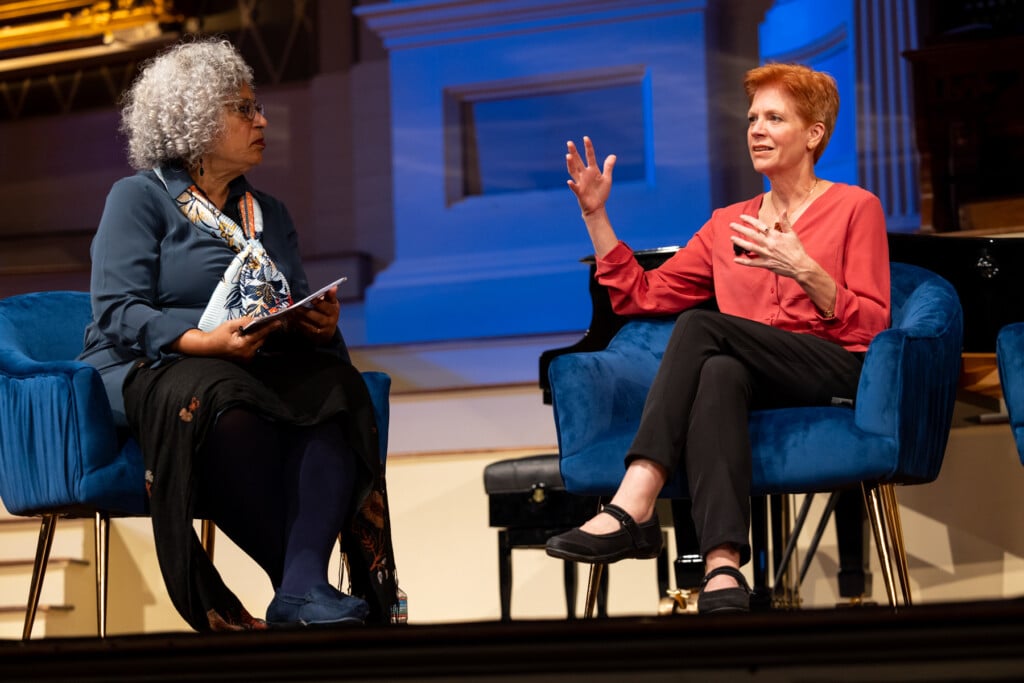Historic New England Summit Coming to Providence
The two-day conference will bring together leading experts in preservation, the arts, urban planning, education and more.

Hundreds of experts in historic preservation, arts and culture, urban planning, public history and more will gather in Providence Nov. 2-3 for the Historic New England Summit.
Sponsored by Historic New England, an organization that preserves and runs 38 historic properties in the New England — including four in Rhode Island — the conference will examine issues like sustainability, history education, community advocacy and the future of New England cities, with an eye on how the challenges can be met to strengthen communities.
Last year’s event — the organization’s first — was held in Worcester, Massachusetts.
“We were hearing from a lot of people that although there are lots of great preservation conferences out there, there wasn’t one that was bringing together big picture issues with allied fields locally,” says Jennifer Robinson, Historic New England’s preservation services manager for southern New England.
Fields like conservation, arts and culture, public history, education and planning tend to be siloed, she says, but overlap so much in what they do.
“As a regional organization, we’re able to bring together all these different voices into conversation.”
A number of national and local organizations and thought leaders will take part in the conference. Locally, Marta Martínez, executive director of Rhode Island Latino Arts, and Lorén Spears, executive director of the Tomaquag Museum, will discuss placemaking in action, while Valerie Tutson, executive director of the Rhode Island Black Storytellers will take part in a panel on broadening access to history, the arts and culture.
Carrie Zaslow, executive director of the Providence Revolving Fund, will talk about housing affordability and inclusive development, while Trudy Coxe, CEO and executive director of the Preservation Society of Newport County, will take part in a “Lightning Talk” about preservation projects.
Brown University President Christina Paxson will join other university presidents for a discussion on how colleges and host municipalities are bridging the “town and gown” divide, and David Cicilline, president and CEO of the Rhode Island Foundation, will offer opening remarks.
Historic New England was drawn to Providence because of the way the city embraces and uses its historical buildings, says Robinson, who happens to be a Cranston native.
“When you’re in Providence, you know where you are. You don’t feel untethered,” she says. “Most restaurants, theaters and retail stores are in buildings at least fifty years old.”
The city’s a “living lab, where people can walk out of the conference and see some of these things in action. It’s facing similar challenges that smaller cities around the country are facing, like sea level rise, affordable housing and how preservation connects to that.”
She knows the conference is tackling some weighty and complex topics, but Robinson hopes that attendees will walk away from the panels feeling energized and excited.
“I hope they realize that this is a collaborative effort — that they’re not alone,” she says. “They have lots of shared goals and hopes for our cities to make them better, and I hope they can share the content and bring it back to their communities.”
She points to Casey Farm in Saunderstown — one of Historic New England’s properties— as a successful case study. After attending a session on sustainability at last year’s conference, staffers began crafting climate action and carbon neutrality plans for the working farm, thanks to funding from the National Endowment for the Humanities and the 1772 Foundation.
“We think of the summit as an ongoing conversation rather than just the two days,” Robinson says.
About 500 people are registered for the event, and tickets are still on sale. The conference will be held in-person at the Vets, 1 Avenue of the Arts, Providence, and virtually as well. For more information and tickets, visit summit.historicnewengland.org.
RELATED ARTICLES
16 Real-Life Haunted Places in Rhode Island
























